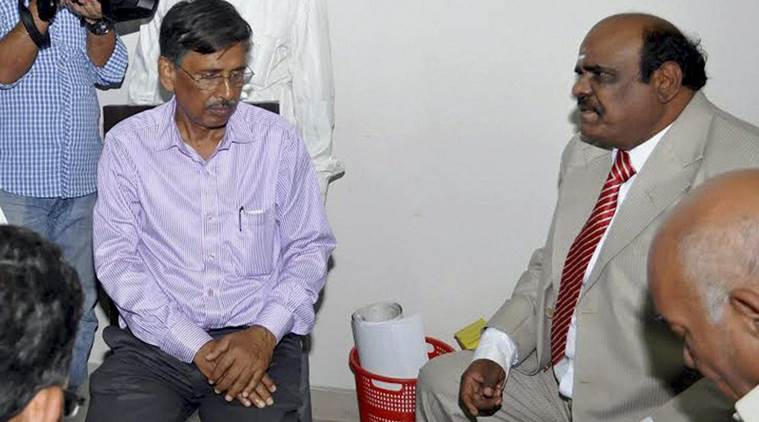Justice Karnan Contempt detailed judgement
The Supreme Court released its detailed judgement dated 9th May 2017, in which a 7 judge bench convicted and sentenced Justice Karnan, sitting Judge of the Calcutta High Court (now retired) to six months imprisonment

The Supreme Court released its detailed judgement dated 9th May 2017, in which a 7 judge bench convicted and sentenced Justice Karnan, sitting Judge of the Calcutta High Court (now retired) to six months imprisonment for contempt of court. While agreeing with the other 5 judges, Justice Chelmeswar and Justice Gogoi, recorded a separate opinion, in which they opined on the failings of the present system of appointments to the higher judiciary and the lack of a proper mechanism short of impeachment for punishing errant judges.
In Paragraph 26 of their judgments, the two Judges observed:
“This case, in our opinion, has importance extending beyond the immediate problem. This case highlights two things, (1) the need to revisit the process of selection and appointment of judges to the constitutional courts, for that matter any member of the judiciary at all levels; and (2) the need to set up appropriate legal regime to deal with situations where the conduct of a Judge of a constitutional court requires corrective measures – other than impeachment to be taken.”
The Campaign for Judicial Accountability and Reforms has stressed time and again, the need for a full time body for appointments as well as for receiving complaints against judges. An ex officio body of judges and government functionaries cannot do justice to the enormous task of screening and selecting judges to our highest constitutional courts. Only a full-time commission, which is independent of the government and the judiciary, can impart transparency and credibility to the system of appointments to the higher judiciary.
The interest of transparency require the appointment process not be shrouded in secrecy, which then breeds nepotism and favouritism. We need a system where names of meritorious candidates are shortlisted and put out for the public to raise their objections and provide relevant information that the appointing authorities may not have about the proposed appointees. Clearly defined criteria for assessing the suitability of a judge, would ring in objectivity in the appointment process.
Media stories:
Read the judgement below

